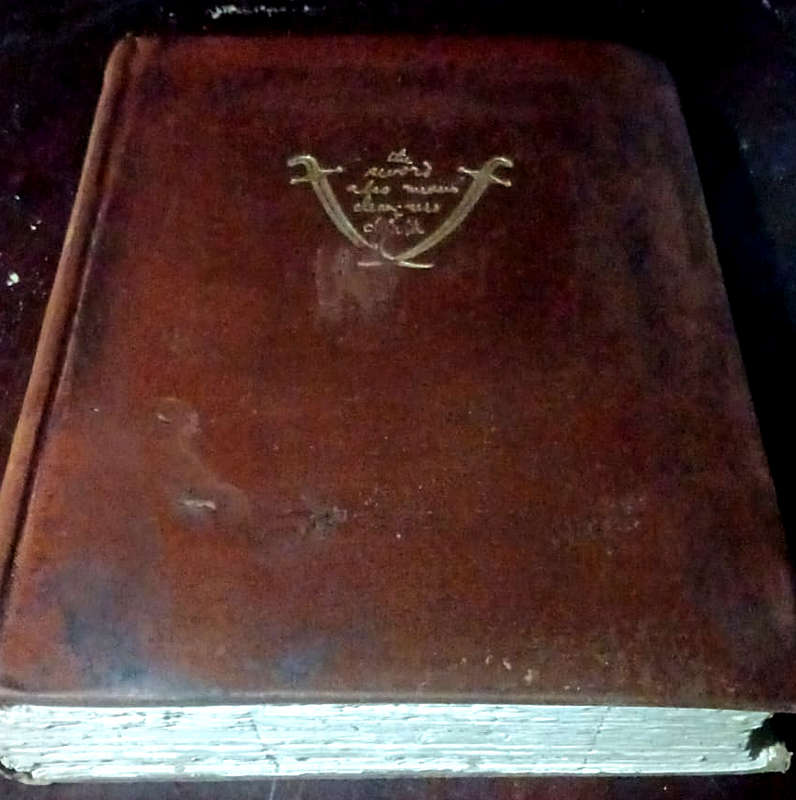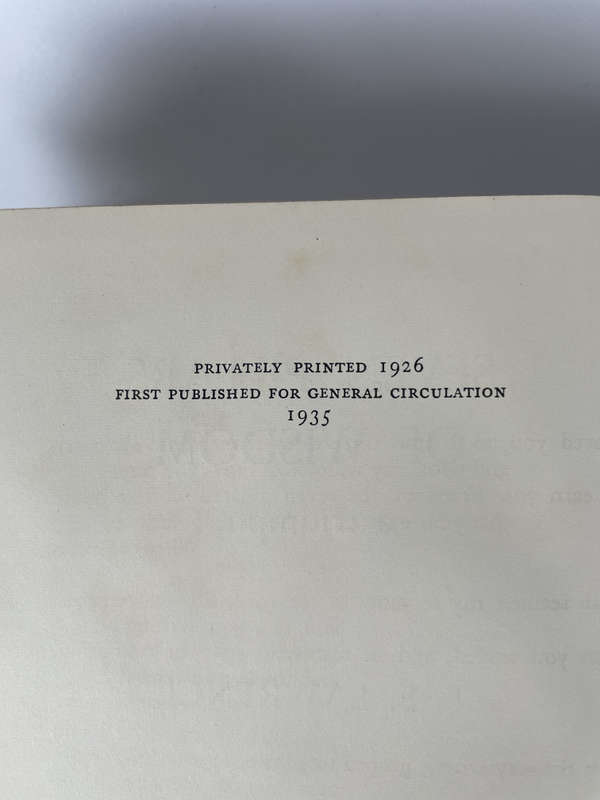



Seven Pillars of Wisdom by T.E. Lawrence - FIRST EDITION (1935)
Check my rate
| Main centres: | 1-3 business days |
| Regional areas: | 3-4 business days |
| Remote areas: | 3-5 business days |




| Main centres: | 1-3 business days |
| Regional areas: | 3-4 business days |
| Remote areas: | 3-5 business days |
Jonathan Cape,1935, first edition, first printing published by Cape in 1935, frontispiece, illustrations, fold-out maps. 672 pages. dust jacket not present. 20.5 cms x 26.2 cms x5.2 cms, some slight wear to boards, owner stamp to endpaper, otherwise condition: very good.
Seven Pillars of Wisdom is the autobiographical account of the experiences of T. E. Lawrence aka "Lawrence of Arabia", while serving as a military advisor to Bedouin forces during the Arab Revolt against the Ottoman Empire of 1916 to 1918. It was published in 1926 as a subscribers edition of 200 copies, with no further issue during his lifetime. Lawrence died in a motorcycle accident in May 1935, at age 46; and within weeks of his death, this 1935 general first edition was released.
The diplomat and academic Charles Hill has called Seven Pillars "a novel traveling under the cover of autobiography", capturing Lawrence's highly personal version of the historical events described in the book. Winston Churchill said, "It ranks with the greatest books ever written in the English language. As a narrative of war and adventure it is unsurpassable."
Lawrence was always fortunate in his iconographers: First, the American journalist Lowell Thomas in 1919 just after the Great War ended, and then the English director David Lean in 1962, more than 40 years later. Both undertook ambitious theatrical projects. Thomas, back from a foray to the Middle East where hed spent two weeks covering Lawrence, played to audiences in New York and later London in an act that was in equal parts historical lecture, exotic travelogue, and brash vaudeville.
In the aftermath of the war, ''Seven Pillars of Wisdom'' ,exotic, romantic, adventurous ,served as an antidote to the gloomy literature that had emerged from the maelstrom.
Lawrence was not only a warrior but a writer. ''His Seven Pillars of Wisdom'' is one of the seminal war memoirs of this or any time. The essayist Hillel Halkin has written of this exceptional chronicle: If one were to read it as fiction, Seven Pillars of Wisdom would be the greatest war novel in English literature.
There is no question of Lawrence's bravery, courage, endurance, daring, and sacrifice. But surely, many of the men who fought on the Western Front manifested equal virtues. Yet can we name any of them? A century later, it is Lawrence's name that stands out. Why? The millions who fought on the Western Front were caught in the grinding maws of modern warfare. They succumbed in massive waves of death, many dying anonymously, their deeds unheralded, their names appearing on little more than casualty lists. In the midst of all this, Lawrence was a throwback to an earlier age of chivalry, a knight-errant, half Richard the Lionheart, half Robin Hood, whose exploits could be celebrated by a war-weary England.
In 2018, Lawrence was featured on a £5 coin, issued in silver and gold, in a six-coin set commemorating the Centenary of the First World War, produced by the Royal Mint.
.